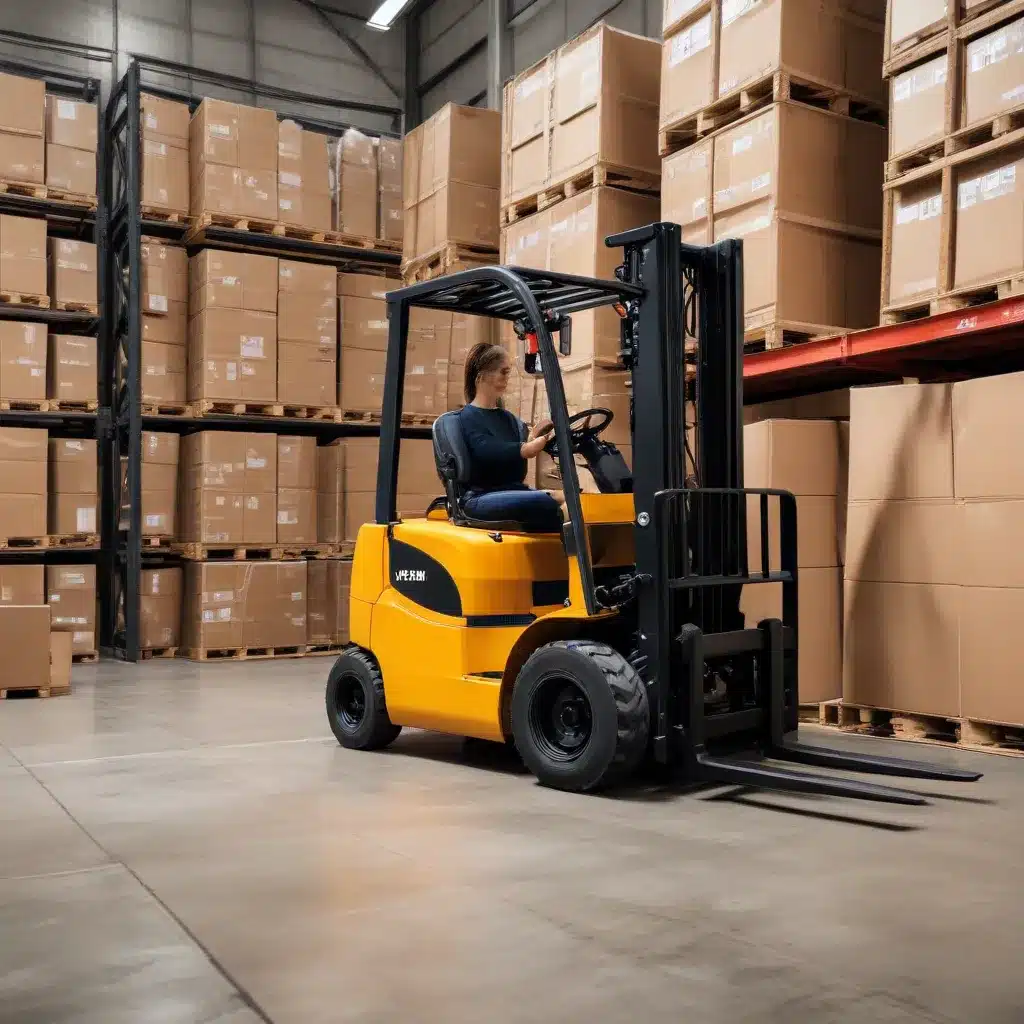
The Importance of Operational Resilience in an Unpredictable World
In today’s dynamic business landscape, the pharmaceutical and biotechnology sectors face an array of challenges that demand unwavering operational resilience. From supply chain disruptions and regulatory changes to technological advancements and evolving customer needs, these industries must navigate a complex and ever-shifting environment. At the heart of this challenge lies a critical decision: whether to lease or purchase your organization’s forklift fleet.
The forklift, a workhorse of the warehouse and logistics operations, is a pivotal asset that can significantly impact an organization’s efficiency, productivity, and bottom line. As these industries grapple with the need for agility and adaptability, the choice between leasing and buying forklifts becomes a strategic consideration that can make or break operational resilience.
Leasing Forklifts: Flexibility and Cost Management
One of the primary advantages of forklift leasing is the flexibility it offers. In an era of rapid change, the ability to adapt your material handling fleet to evolving business needs is crucial. Leasing allows organizations to scale their forklift resources up or down as required, without the burden of long-term ownership commitments.
This flexibility is particularly valuable for pharmaceutical and biotechnology companies, where production demands and storage requirements can fluctuate unpredictably. By leasing forklifts, these organizations can respond quickly to changes in their operational landscape, avoiding the risk of over-investing in assets that may become underutilized.
Moreover, leasing can provide a more predictable and manageable cost structure. Maintenance, repairs, and even replacement costs are often included in the leasing agreement, allowing businesses to better forecast and plan their forklift-related expenses. This cost management advantage can be especially beneficial for companies navigating tight budgets or seeking to optimize their capital expenditure.
Purchasing Forklifts: Long-Term Value and Control
On the other hand, buying forklifts can offer distinct advantages for pharmaceutical and biotechnology companies seeking long-term value and operational control. By owning their forklift fleet, organizations gain the ability to customize and optimize their material handling systems to suit their unique needs.
Customization can be a significant advantage in these industries, where specialized handling requirements or regulatory standards may demand tailored forklift configurations. Owned forklifts can be outfitted with specific attachments, safety features, or integrated technology solutions that align with the organization’s precise operational requirements.
Moreover, by purchasing forklifts, companies can potentially benefit from a lower overall cost of ownership over the long term. While the initial investment may be higher, the absence of recurring leasing fees can result in substantial savings, especially for organizations that plan to use the forklifts for an extended period.
Navigating the Lease vs. Buy Decision
When considering the forklift leasing vs. buying dilemma, pharmaceutical and biotechnology companies must weigh a variety of factors to determine the optimal solution for their specific operational needs and strategic objectives.
Factors to Consider:
-
Operational Flexibility: Assess the degree of change and uncertainty in your organization’s material handling requirements. If flexibility is a priority, leasing may be the more suitable option.
-
Capital Availability: Evaluate your company’s access to capital and the impact of forklift investments on your overall financial strategy. Leasing can offer a more manageable way to acquire forklifts without tying up significant upfront capital.
-
Maintenance and Repair Costs: Understand the long-term maintenance and repair costs associated with owning forklifts versus the potential cost savings of leasing, which often includes these services.
-
Customization and Integration: Consider the need for specialized forklift configurations or integration with your existing warehouse management systems. Owning forklifts may provide greater control and customization opportunities.
-
Asset Lifecycle Management: Analyze the expected lifespan of your forklift fleet and the impact of technological advancements. Leasing can enable you to regularly update your material handling equipment to maintain operational efficiency.
-
Regulatory Compliance: Ensure that your forklift fleet, whether leased or owned, meets the relevant safety standards and regulatory requirements for your industry.
By carefully weighing these factors, pharmaceutical and biotechnology companies can make an informed decision that aligns with their strategic priorities, operational needs, and financial constraints.
The Role of Industry Expertise
Navigating the forklift leasing vs. buying dilemma requires a deep understanding of the unique dynamics and challenges faced by the pharmaceutical and biotechnology sectors. As an experienced industry expert, I recommend leveraging the expertise of trusted partners and industry associations to gain valuable insights and guidance.
Collaboration with forklift manufacturers, material handling specialists, and industry organizations can provide valuable insights into the latest trends, best practices, and innovative solutions. These resources can help organizations make well-informed decisions that optimize their forklift fleet management strategies and ultimately enhance their operational resilience.
Conclusion: Embracing Agility and Adaptability
In the face of an unpredictable business environment, the choice between forklift leasing and buying becomes a critical strategic decision for pharmaceutical and biotechnology companies. By carefully considering the factors that align with their unique operational needs and long-term objectives, these organizations can navigate this dilemma and unlock the flexibility, cost management, and customization benefits that best support their pursuit of operational resilience.
Embracing agility and adaptability is the key to thriving in the dynamic landscape of the pharmaceutical and biotechnology industries. By making well-informed forklift fleet decisions, these organizations can position themselves for success, ensuring the efficient and reliable material handling that underpins their critical operations. The path to operational resilience starts with a careful evaluation of the forklift leasing vs. buying choice.

